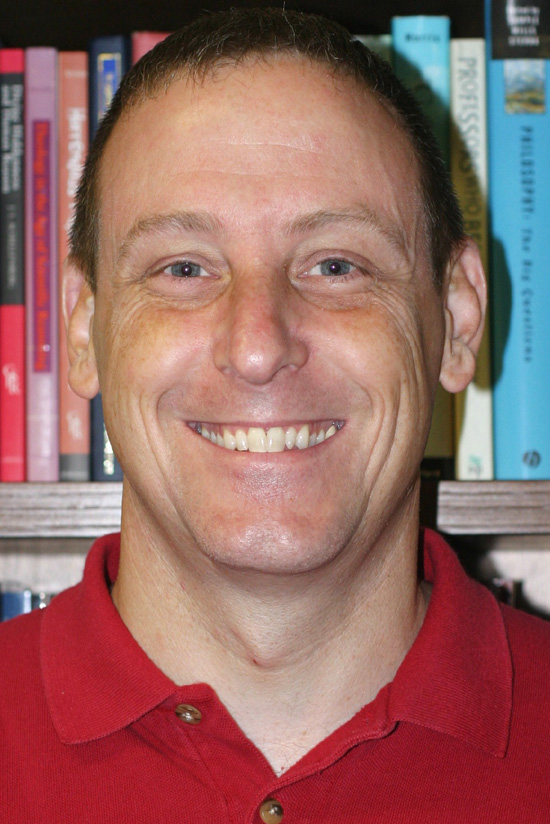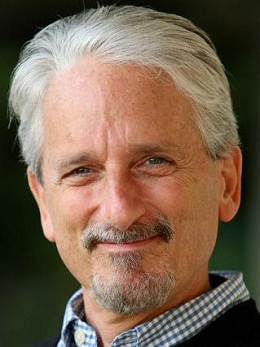
EDITOR’S NOTE: This is the sixth story in a series of Baptist Press articles about an ongoing dialogue regarding evolution on the BioLogos website. To read BP’s initial story, visit bpnews.net/BPnews.asp?ID=37901.
[QUOTE@right@180=“Christians since the time of Darwin have recognized the incongruity of the biblical teaching on death and the positive role it plays in evolution.”
— John Laing, Southwestern Seminary]NASHVILLE, Tenn. (BP) — A theistic evolutionist “simply cannot escape the fact that the necessary corollary to survival of the fittest is destruction of the weakest and therefore, he must view death as a primary creative force of God,” a Southern Baptist professor writes in the latest exchange with The BioLogos Foundation.
“This, though, is contrary to the biblical view, which depicts death as an invader, disturber of peace, and a force of evil,” John Laing, associate professor of systematic theology and philosophy at Southwestern Baptist Theological Seminary, wrote on the topic of evolution and death.
 Most Christians who accept evolution tend to avoid discussion of the role death plays in their creation model, preferring instead to cast evolution in positive terms, Laing said. Yet in evolutionary thought, death actually functions as a mechanism for life, playing a vital role in natural selection by rooting out weakness, he wrote Aug. 9 in a series at BioLogos.org titled “Southern Baptist Voices.”
Most Christians who accept evolution tend to avoid discussion of the role death plays in their creation model, preferring instead to cast evolution in positive terms, Laing said. Yet in evolutionary thought, death actually functions as a mechanism for life, playing a vital role in natural selection by rooting out weakness, he wrote Aug. 9 in a series at BioLogos.org titled “Southern Baptist Voices.”
According to Scripture, Laing noted, death is most often associated with consequences for sinful activity or the judgment of God. Death is described in the Book of Romans as the wages of sin, a snare in the Psalms and a trouble in the Book of Job.
The negative view of death in the Bible also is evident in the cleanliness rituals required for ancient Israelites when they encountered a dead body, Laing wrote. “Death is unclean and an impediment to proper relationship with God,” he added.
Rather than a means by which God creates, Laing said, death in the Bible is “antithetical to God’s creative work as the Giver of Life.” Death is the last enemy to be defeated, and death will not be a part of God’s perfected Kingdom. The defeat of death in the resurrection of Christ “is a vindication of God’s covenant promises” and is a central part of the Gospel, Laing wrote.
“Christians since the time of Darwin have recognized the incongruity of the biblical teaching on death and the positive role it plays in evolution,” Laing, director of Southwestern’s chaplaincy program, wrote. “Some have attempted to alleviate the tension by assigning the negative aspects to the spiritual realm.
“… Others have redefined death as a positive force,” Laing added, citing Newman Smyth’s characterization of natural selection “in almost self-sacrificial terms, such that the self-giving of Christ is paralleled in the deaths of weaker creatures in service to the species.”
“While Smyth’s arguments fit nicely with the evolutionary model, it seems to be seriously at odds with the biblical picture,” Laing wrote.
 Jeffrey Schloss, a biologist and director of the Center for Faith, Ethics, and the Life Sciences at Westmont College in Santa Barbara, Calif., wrote a three-part response to Laing on behalf of BioLogos.
Jeffrey Schloss, a biologist and director of the Center for Faith, Ethics, and the Life Sciences at Westmont College in Santa Barbara, Calif., wrote a three-part response to Laing on behalf of BioLogos.
Schloss said he “could not be in stronger accord” with Laing that life is God’s intention for humanity and death is an intrusive, subverting consequence of sin. The question he grapples with, though, is “whether other living beings beyond and before humans were created to be immortal.”
The view that death in all creation was the result of the human fall was the dominant perspective of the church fathers, key reformers and most Christians throughout the 17th century, Schloss said, but so was geocentrism and the doctrine of human exceptionalism. (Baptist Press note: Geocentrism is the theory that Earth is the center of the universe while human exceptionalism is the idea that humans are higher than and different from all other creatures.)
“So is the primordial nature of death more like geocentrism, or more like human exceptionalism? Scientifically, there is little question that it is more akin to geocentrism,” Schloss wrote.
Laing, Schloss said, “does not provide clear scriptural evidence for death being a comparable enemy to and intrusion upon God’s purposes for all creatures.”
Schloss asked, “Is non-human death an evil?” Some argue, he said, that the early chapters of Genesis clearly depict “consumption of life and resulting death as part of primordial creation.” Genesis depicts plants as given for food, “and every chomp kills.”
“Nearly every time a raspberry or banana or walnut or snap pea or grain of wheat or ear of corn is eaten, one or more living organisms — embryos — are killed,” Schloss wrote, explaining a view he does not support. “It is as much a creaturely death for these organisms as destroying an embryo or aborting a fetus is for the human organism.”
If God did not intend for organisms to die in order for others to live, He could have given manna from heaven as in the wilderness or commanded humans “to eat not green plants but milk and honey that do not entail creaturely death,” Schloss wrote.
Given such realities, Schloss said, some argue that “it is not death itself but the fear, pain and suffering associated with death that constitute the natural evil.”
Humans repeatedly have attempted to explain the concept of death preceding the fall and to explain animal suffering by using arguments similar to those explaining human suffering, Schloss said.
“The possibility of pain may be requisite to that of fulfillment, or death may be conjoined to life as a function of metaphysical, logical, or biotic necessity,” Schloss wrote. “Death and its pains may be fully consoled, and necessary for the experience of consolation, in a life to come. The existence of death, in a finite world, may be a necessary form of ‘taking turns’ so that both the number and the diversity of creatures that experience and manifest life are maximized.”
The ability to experience pain and death, some argue, may give humans and animals the opportunity for the most moral expression of goodness, which is caring for others to the point of sacrifice, Schloss wrote.
While Schloss acknowledges problems with such arguments, he said they cannot be dismissed out-of-hand.
“Though I believe in a Fall, this unease is not rationally relieved by attributing to an Adam the present state of all nature,” Schloss concluded. “Nor is it resolved by the various alternative considerations I’ve described and which, taken together, seem to have considerable merit but not sufficiency.
“Notwithstanding, I thankfully affirm that ‘I have known the goodness of the Lord in the land of the living.’ And I look to the day when we may say together, ‘My ears had heard of You, but now my eyes have seen You,'(Job 42:5).”
In comments to Baptist Press, Laing of Southwestern Seminary said his essay was intended as “a critique of the way death functions in an evolutionary model similar to that of Darwinism, including the BioLogos position, over against its presentation in the Bible from a biblical/theological perspective.”
“I did not present a biblical argument for the origins of death, a scientific or conceptual argument for how consumption might take place (even of plants) without death occurring, or a biblical or philosophical argument for the eternal existence of finite beings,” Laing said.
“In fact, I made no claims regarding these interesting and important issues, but this is where Schloss focuses most of his attention,” Laing said.
Instead, Laing’s essay focused on the more basic claim that in the Bible death is virtually always depicted in negative terms, and when it is not — as in Psalm 116:15, for example — “the positive aspect of death is tied to God’s redemption and defeat of it.”
“Schloss has argued that it is only human death that is depicted as I have argued, and challenged me to identify a passage in the Bible where non-human death is seen as negative,” Laing said. “I would suggest that there are many, the most obvious being found in Romans 8, where the whole creation waits eagerly for its release from bondage to decay (a result of death).
“I suggest that all the imagery of a new earth and a restored kingdom without death speaks against the positive function of death in a theistic evolutionary model.”
Laing was invited by BioLogos to write a response to Schloss’ essays, and he told Baptist Press Aug. 21 he intends to do so in the near future, expanding on his comments to BP. The response will be posted at BioLogos.org.
–30–
Erin Roach is assistant editor of Baptist Press. Get Baptist Press headlines and breaking news on Twitter (@BaptistPress), Facebook (Facebook.com/BaptistPress ) and in your email ( baptistpress.com/SubscribeBP.asp).















